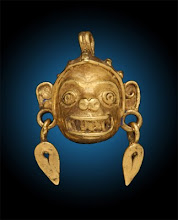I came across some old issues of Jacob's Orchestra Monthly on Google Books, was looking through the 1918 issue, and suddenly stumbled on a full-page ad for my Couturier mellophone. Now I know what falling through a crack in the time-space continuum feels like.
I have to say that "perfect intonation" is a bit of overstatement... but it might be a little too late to complain.
Wednesday, December 18, 2013
Tuesday, December 17, 2013
Trombone Slide Lubrication and other Practical Information for Brass Players in Joseph Fröhlich’s Musikschule (1813) by Howard Weiner
• Protect the lungs; therefore avoid excitement, vigorous running and riding, and excessive consumption of fiery drinks; that is to say, lead a moderate life conducive to good health and playing. Neglecting this will weaken the lungs, making breathing difficult and depriving the player of the capability of playing entire phrases in one breath.
• Do not practice too long; better more often than too much at one time. Conductors who put wind players through their paces in rehearsals of four to five hours without pause are ignorant of the instruments and are guilty of driving the players prematurely into their graves.
• Do not play after eating or while digesting. The scheduling of rehearsals in the afternoon or even immediately after meals is extremely misguided.
• Do not play when ill or suffering respiratory problems—the lungs will be harmed or even ruined for the rest of one’s life.
• Do not drink immediately after playing when the lungs are still warm (the cause of many a premature death). If the mouth is dry, which is disadvantageous for the embouchure, it is best to rinse it out with an alcoholic liquor, which provides invigoration and new strength to the lips.
• It is easier to play if the instrument is good. Frugality is out of place when buying an instrument.
• Protect the lungs; therefore avoid excitement, vigorous running and riding, and excessive consumption of fiery drinks; that is to say, lead a moderate life conducive to good health and playing. Neglecting this will weaken the lungs, making breathing difficult and depriving the player of the capability of playing entire phrases in one breath.
• Do not practice too long; better more often than too much at one time. Conductors who put wind players through their paces in rehearsals of four to five hours without pause are ignorant of the instruments and are guilty of driving the players prematurely into their graves.
• Do not play after eating or while digesting. The scheduling of rehearsals in the afternoon or even immediately after meals is extremely misguided.
• Do not play when ill or suffering respiratory problems—the lungs will be harmed or even ruined for the rest of one’s life.
• Do not drink immediately after playing when the lungs are still warm (the cause of many a premature death). If the mouth is dry, which is disadvantageous for the embouchure, it is best to rinse it out with an alcoholic liquor, which provides invigoration and new strength to the lips.
• It is easier to play if the instrument is good. Frugality is out of place when buying an instrument.
Tuesday, December 10, 2013
Mute point
Possibly the first trumpet mute ever, 1865.
[CORRECTION: of course not. A wooden trumpet mute is mentioned in 1813 Musikschule, next entry. This is possibly the first patent for a mute.]
http://www.google.com/patents/US51363
"In all musical instruments, such as are usually made of brass or German silver, and comprised under the general term of brass instruments, it has heretofore been a great annoyance for the neighborhood, if a person commences to practice on such an instrument. The sounds produced by unpracticed persons are really distressing. It has, therefore, been a great desideratum to have what is termed a mute, that is to say, a device which will deaden the sound without altering the tune."
[CORRECTION: of course not. A wooden trumpet mute is mentioned in 1813 Musikschule, next entry. This is possibly the first patent for a mute.]
http://www.google.com/patents/US51363
"In all musical instruments, such as are usually made of brass or German silver, and comprised under the general term of brass instruments, it has heretofore been a great annoyance for the neighborhood, if a person commences to practice on such an instrument. The sounds produced by unpracticed persons are really distressing. It has, therefore, been a great desideratum to have what is termed a mute, that is to say, a device which will deaden the sound without altering the tune."
Friday, November 22, 2013
QotD
We are musicians and our model is sound not literature, sound not mathematics, sound not theatre, visual arts, quantum physics, geology, astrology or acupuncture
- Gérard Grisey
Sunday, October 13, 2013
Bookmarks
On the invention of the valves; also Why Was the Valve Invented? as a source material
Deliberate practice
Deliberate practice
Wednesday, July 17, 2013
...A Pastoral Symphony (Symphony No. 3), which draws on his experiences as an ambulance volunteer in that war, including a cadenza for trumpet in the second movement based on a bugler practicing and repeatedly hitting a wrong note, a flattened seventh, which Vaughan Williams alludes to in the symphony.
Subscribe to:
Comments (Atom)


